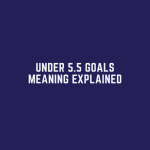Recognizing the problem
It can be challenging to come to terms with a gambling addiction, especially when it has consumed a significant part of your life. Recognizing the problem often involves acknowledging the negative consequences it has had on your relationships, finances, and overall well-being.
Many individuals may experience feelings of guilt, shame, or denial when confronted with their gambling habits. However, it is crucial to take a step back and reflect on the extent of the issue, including any patterns or triggers that contribute to compulsive betting behavior.
Understanding the negative impact of master betting
Master betting, also known as excessive gambling, can have severe consequences on various aspects of an individual’s life. Financial instability is a common outcome of this behavior, leading to debt, bankruptcy, and loss of assets. The constant need to chase losses can create a vicious cycle, plunging individuals deeper into financial ruin.
Moreover, the negative impact of master betting extends beyond financial implications. Mental health can be severely affected, with increased levels of stress, anxiety, and depression commonly observed in individuals struggling with gambling addiction. Relationships with family and friends can also deteriorate as the focus shifts from personal connections to the obsession with gambling.
Identifying triggers and patterns
Identifying triggers is crucial in understanding the root causes behind engaging in master betting behaviors. Triggers can be diverse and unique to each individual, ranging from emotional stressors to environmental cues. These triggers often lead to an urge to bet excessively, making it essential to recognize and address them effectively.
Patterns in master betting behavior can also offer valuable insight into the habit. By closely observing when, where, and why the urge to bet arises, individuals can begin to notice recurring trends or behaviors that precede impulsive betting. Being able to identify these patterns can assist in developing strategies to interrupt the cycle of harmful behaviors and promote healthier choices.
Seeking support from loved ones
It’s important to reach out to loved ones for support when struggling with the negative effects of master betting. Sharing your feelings and experiences with trusted individuals can help alleviate the burden and provide much-needed emotional support. Loved ones can offer perspective, understanding, and empathy during difficult times, making it easier to navigate challenges and seek help when needed.
Building a support system of family and friends who are aware of the issue can create a sense of accountability and encouragement to make positive changes. Loved ones can provide a listening ear, practical advice, and unconditional love to help you through the process of addressing and overcoming master betting behaviors. Their support can be instrumental in fostering a sense of connection, strength, and resilience as you work towards healthier habits.
Exploring healthier coping mechanisms
Seeking out healthier coping mechanisms is crucial for breaking free from destructive habits like master betting. Engaging in activities that bring joy and relaxation, such as exercise or creative outlets like painting or writing, can help redirect focus and alleviate stress that may lead to compulsive behavior. Setting aside time for mindfulness practices, like meditation or deep breathing exercises, can also aid in fostering self-awareness and emotional regulation.
Additionally, connecting with a support group or therapist can provide valuable guidance and encouragement throughout the journey towards healthier coping strategies. Surrounding oneself with individuals who understand the challenges and offer non-judgmental support can be instrumental in promoting long-term recovery from harmful behaviors. Making a conscious effort to prioritize self-care and self-reflection can contribute to a more balanced and fulfilling lifestyle, reducing the likelihood of resorting to harmful coping mechanisms.















